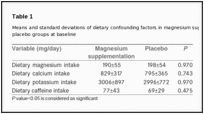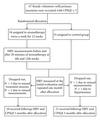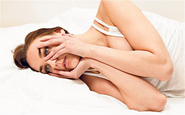-
About
- About Listly
- Community & Support
- Howto
- Chrome Extension
- Bookmarklet
- WordPress Plugin
- Listly Premium
- Privacy
- Terms
- DMCA Copyright
- © 2010-2025 Boomy Labs

 Erika Yigzaw
Erika Yigzaw
Listly by Erika Yigzaw
Reources to help you sleep better and beat insomnia, and reasons why you'd want to!

PubMed comprises more than 23 million citations for biomedical literature from MEDLINE, life science journals, and online books. Citations may include links to full-text content from PubMed Central and publisher web sites.

Abstract Background: Nearly 50% of older adults have insomnia, with difficulty in getting to sleep, early awakening, or feeling unrefreshed on waking. With aging, several changes occur that can place one at risk for insomnia, including age-related changes in various circadian rhythms, environmental and lifestyle changes, and decreased nutrients intake, absorption, retention, and utilization.
![The effect of magnesium supplementation on pri... [J Res Med Sci. 2012] - PubMed - NCBI](http://media.list.ly/production/36342/283755/images_185px.png)
PubMed comprises more than 23 million citations for biomedical literature from MEDLINE, life science journals, and online books. Citations may include links to full-text content from PubMed Central and publisher web sites.
![A randomized controlled trial with bright lig... [J Biol Rhythms. 2013] - PubMed - NCBI](http://media.list.ly/production/36342/283756/images_185px.png)
PubMed comprises more than 23 million citations for biomedical literature from MEDLINE, life science journals, and online books. Citations may include links to full-text content from PubMed Central and publisher web sites.
![Dim light at night disrupts molecular circadi... [J Biol Rhythms. 2013] - PubMed - NCBI](http://media.list.ly/production/36342/283757/images_185px.png)
PubMed comprises more than 23 million citations for biomedical literature from MEDLINE, life science journals, and online books. Citations may include links to full-text content from PubMed Central and publisher web sites.
![Effects of lavender aroma on sleep qualit... [Percept Mot Skills. 2012] - PubMed - NCBI](http://media.list.ly/production/36342/283775/images_185px.png)
PubMed comprises more than 23 million citations for biomedical literature from MEDLINE, life science journals, and online books. Citations may include links to full-text content from PubMed Central and publisher web sites.

Basic information on sleep disorders and what the science says about the effectiveness of CAM practices people use as sleep aids. From the U.S. National Institutes of Health.

Evidence-Based Complementary and Alternative Medicine (eCAM) is an international, peer-reviewed journal that seeks to understand the sources and to encourage rigorous research in this new, yet ancient world of complementary and alternative medicine.

Abstract Background: Nearly 50% of older adults have insomnia, with difficulty in getting to sleep, early awakening, or feeling unrefreshed on waking. With aging, several changes occur that can place one at risk for insomnia, including age-related changes in various circadian rhythms, environmental and lifestyle changes, and decreased nutrients intake, absorption, retention, and utilization.

Evidence-Based Complementary and Alternative Medicine (eCAM) is an international, peer-reviewed journal that seeks to understand the sources and to encourage rigorous research in this new, yet ancient world of complementary and alternative medicine.

Chronic insomnia is a major public health problem affecting approximately 10% of adults. Use of meditation and yoga to develop mindful awareness ('mindfulness training') may be an effective approach to treat chronic insomnia, with sleep outcomes comparable to nightly use of prescription sedatives, but more durable and with minimal or no side effects.

During the school year, many teenagers find themselves nodding off during their early morning classes as high school bells ring around 7:30 a.m. While parents and teachers may attribute falling asleep during class to staying up too late checking Facebook statuses and texting with friends, medical evidence suggests that an early school start time before 8:30 AM is a greater culprit because classes are occurring when students' brains and bodies are still in biological sleep mode.

Julie Boergers, Ph.D., a psychologist and sleep expert from the Bradley Hasbro Children's Research Center, recently led a study linking later school start times to improved sleep and mood in teens. The article, titled "Later School Start Time is Associated with Improved Sleep and Daytime Functioning in Adolescents," appears in the current issue of the Journal of Developmental & Behavioral Pediatrics.
